Thurgood Marshall was born in 1908. His grandfather had been a slave. His father was a server at a country club that excluded African Americans. His mother was a nursery school teacher. His parents taught him love of the law, and his father especially had a great influence on him, and taught him respect for the laws and constitution.
In high school, Marshall had to memorize parts of the Constitution and the Bill of Rights. It was a punishment for something he had done. But he found himself enthralled by the these documents that articulated the basic rights and freedoms of Americans. He also saw that African Americans could not fully exercise these basic rights and freedoms.
When he applied to law school, he saw this first hand when he was denied admission to the University of Maryland Law School because he was black. This had a profound impact on him. Although he is not as well known as other leaders of the civil rights movement, like Martin Luther King, Jr. and Malcolm X, he profoundly affected the progress of civil rights in real ways by using the law.
When he was accepted into Howard Law School, he met his mentor: law school dean Charles Hamilton, who encouraged his students to use their legal background to end racial discrimination.
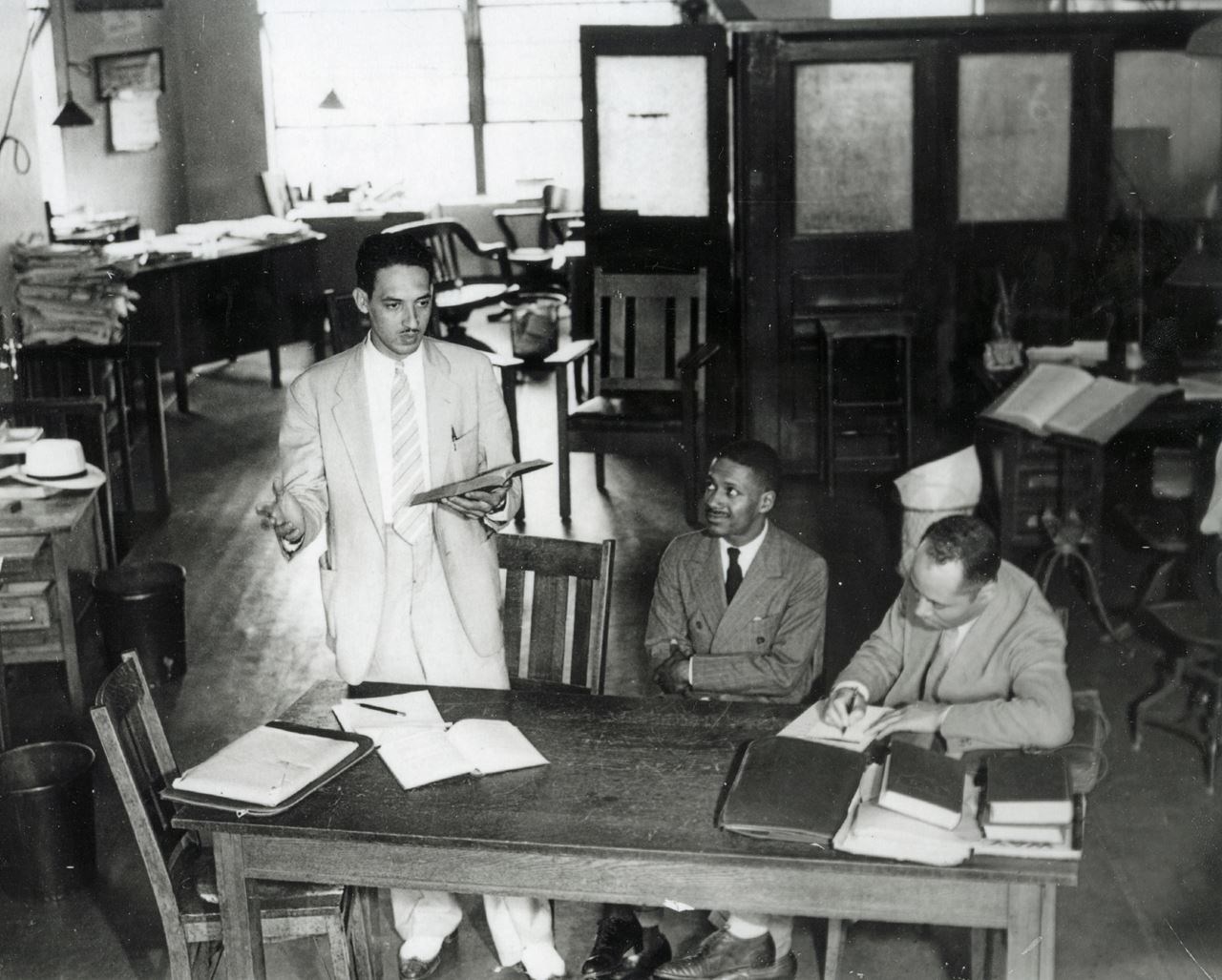 Thurgood Marshall (left) with Mentor Charles Hamilton (right)Unknown. Washington Area Spark [CC BY-NC 2.0] via FlickrIn 1935, when Hamilton served as first special counsel for the National Association for the Advancement of Colored People (NAACP), Marshall worked with him. Marshall argued for a plaintiff (someone suing another entity) who was being denied admission to a college because of race and won.
Thurgood Marshall (left) with Mentor Charles Hamilton (right)Unknown. Washington Area Spark [CC BY-NC 2.0] via FlickrIn 1935, when Hamilton served as first special counsel for the National Association for the Advancement of Colored People (NAACP), Marshall worked with him. Marshall argued for a plaintiff (someone suing another entity) who was being denied admission to a college because of race and won.
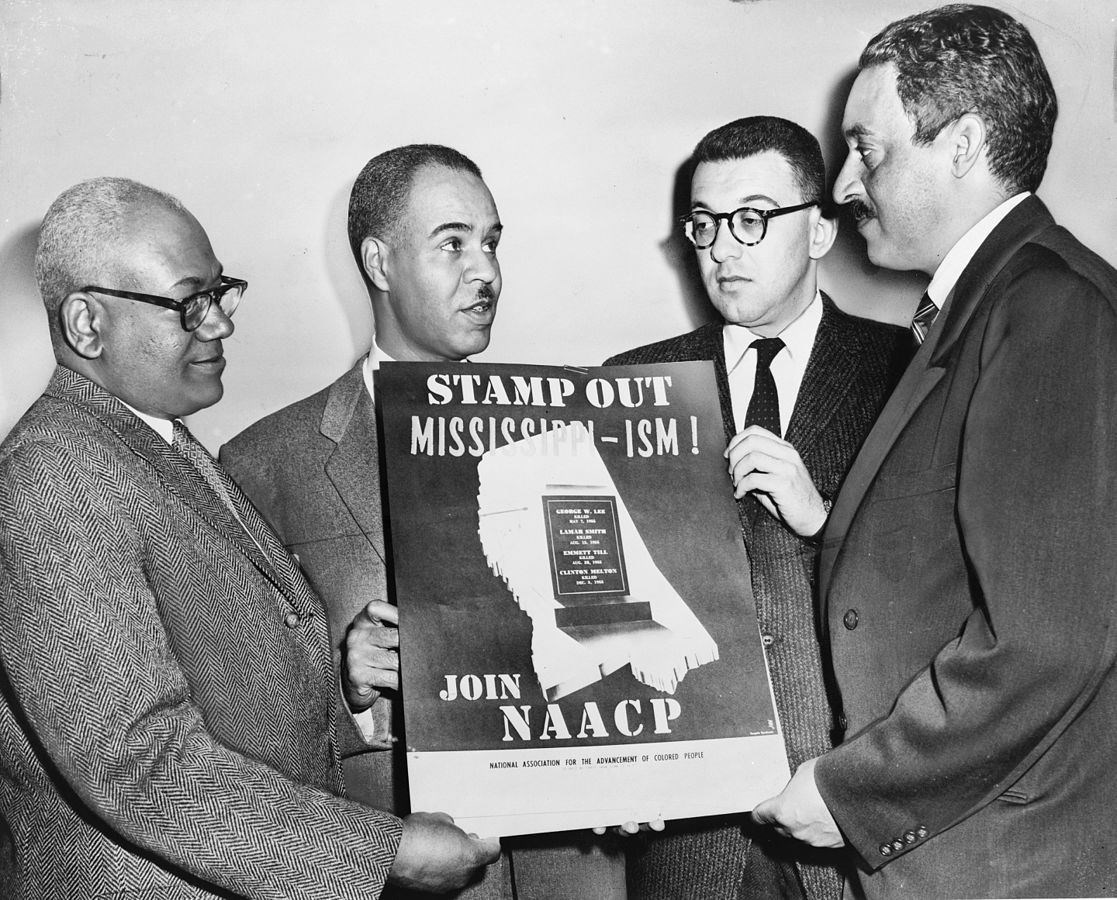 NAACP leaders L-R: Henry L. Moon, director of public relations; Roy Wilkins, executive secretary; Herbert Hill, labor secretary Thurgood Marshall, special counsel.New York World-Telegram and the Sun staff photographer: Al Ravenna - Library of Congress Prints and Photographs Division. New York World-Telegram and the Sun Newspaper Photograph CollectionNAACP Legal Defense & Education Fund
NAACP leaders L-R: Henry L. Moon, director of public relations; Roy Wilkins, executive secretary; Herbert Hill, labor secretary Thurgood Marshall, special counsel.New York World-Telegram and the Sun staff photographer: Al Ravenna - Library of Congress Prints and Photographs Division. New York World-Telegram and the Sun Newspaper Photograph CollectionNAACP Legal Defense & Education FundThe 1868 Equal Protection Clause of the 14th Amendment of the US Constitution deems "no State shall ... deny to any person ... the equal protection of the laws.” But racial segregation was a fact of life in the US.
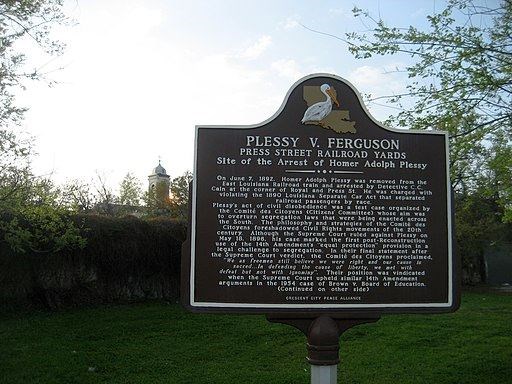 Plessy Park, Press Street, Lower Faubourg Marigny at the edge of Bywater, New Orleans. Plaque on history of Plessy vs. Ferguson case.Infrogmation of New Orleans (Photo by Infrogmation [GFDL], via Wikimedia CommonsThe 1896 Plessy v. Ferguson ruling was a landmark Supreme Court ruling, because it stated that racial segregation in public facilities did not violate the Equal Protection Clause, as long as the facilities were equal. This was called the “separate but equal doctrine.”
Plessy Park, Press Street, Lower Faubourg Marigny at the edge of Bywater, New Orleans. Plaque on history of Plessy vs. Ferguson case.Infrogmation of New Orleans (Photo by Infrogmation [GFDL], via Wikimedia CommonsThe 1896 Plessy v. Ferguson ruling was a landmark Supreme Court ruling, because it stated that racial segregation in public facilities did not violate the Equal Protection Clause, as long as the facilities were equal. This was called the “separate but equal doctrine.”
Because of this, Thurgood Marshall knew it was critical to overturn Plessy v. Ferguson. As the chief counsel of the NAACP, he argued before the Supreme Court for the plaintiffs of Brown v. Board of Education, who were parents trying to enroll their children into the nearest schools. This was a landmark case, which overturned Plessy v. Ferguson, and it was a unanimous decision. The court judged segregation unconstitutional and harmful to black students, even if the school buildings were comparable.
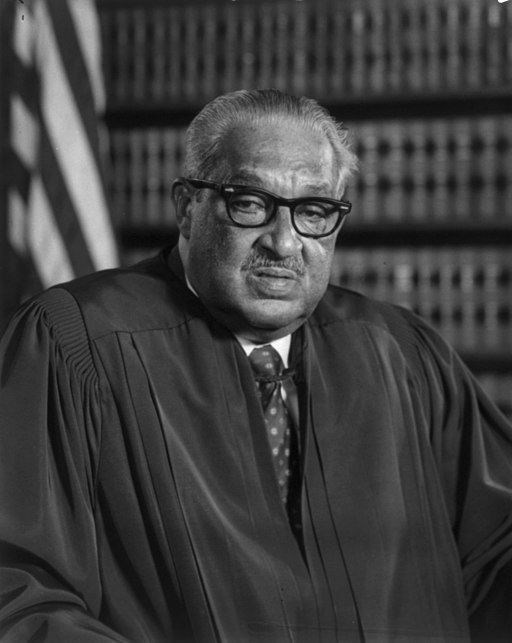 Supreme Court Justice Thurgood Marshall [Public domain], via Wikimedia CommonsThurgood Marshall went on to argue many more cases before the Supreme Court and "represented and won more cases before the United States Supreme Court than any other American."
Supreme Court Justice Thurgood Marshall [Public domain], via Wikimedia CommonsThurgood Marshall went on to argue many more cases before the Supreme Court and "represented and won more cases before the United States Supreme Court than any other American."
In 1967, President Lyndon B. Johnson appointed him as a justice to the Supreme Court. Marshall served for 24 years, until he retired in 1991 because of his health. He passed away in 1993. There are many statues and memorials dedicated to Marshall. He is one of the great civil rights activists of the twentieth century.
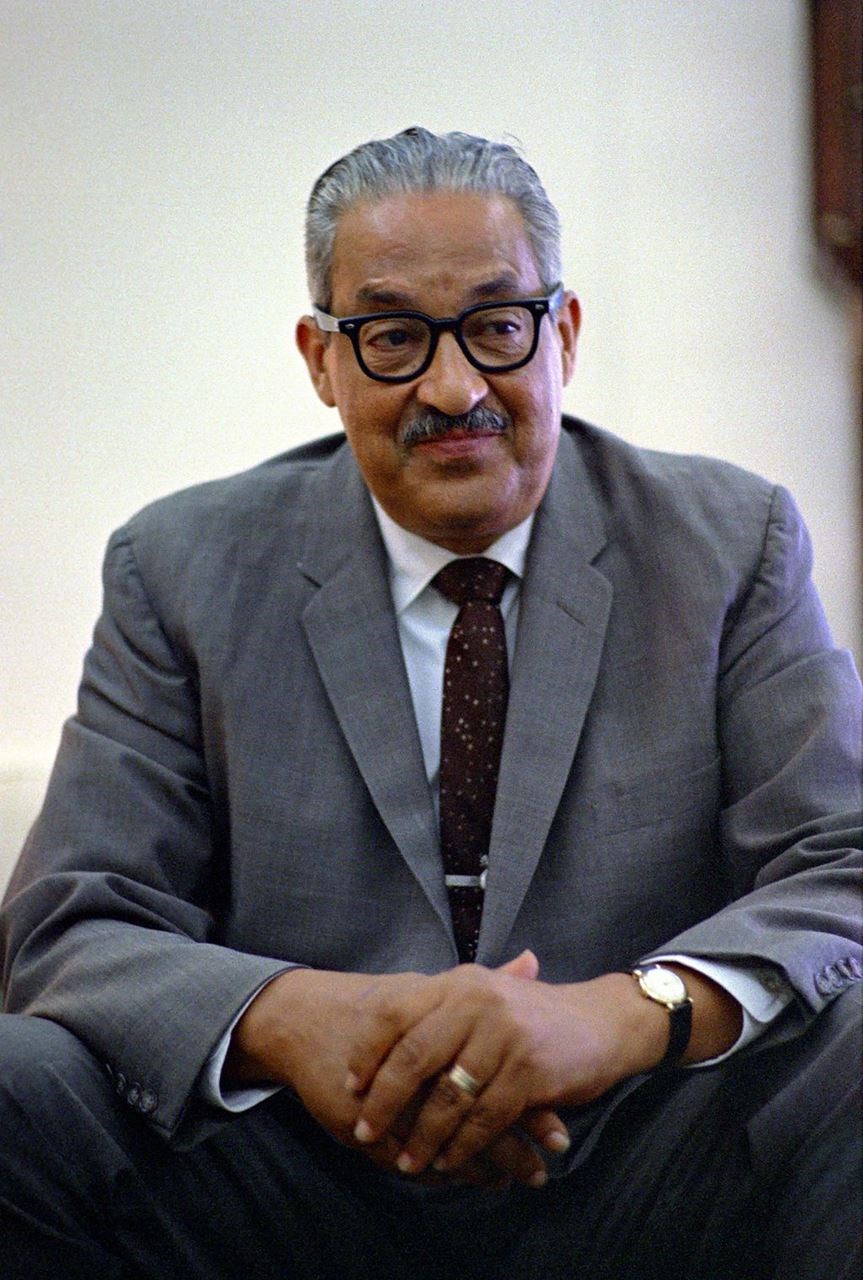 Thurgood MarshallOkamoto, Yoichi Robert [Public domain], via Wikimedia Commons
Thurgood MarshallOkamoto, Yoichi Robert [Public domain], via Wikimedia Commons
Page created on 6/30/2018 2:04:05 AM
Last edited 6/17/2020 8:49:18 PM
